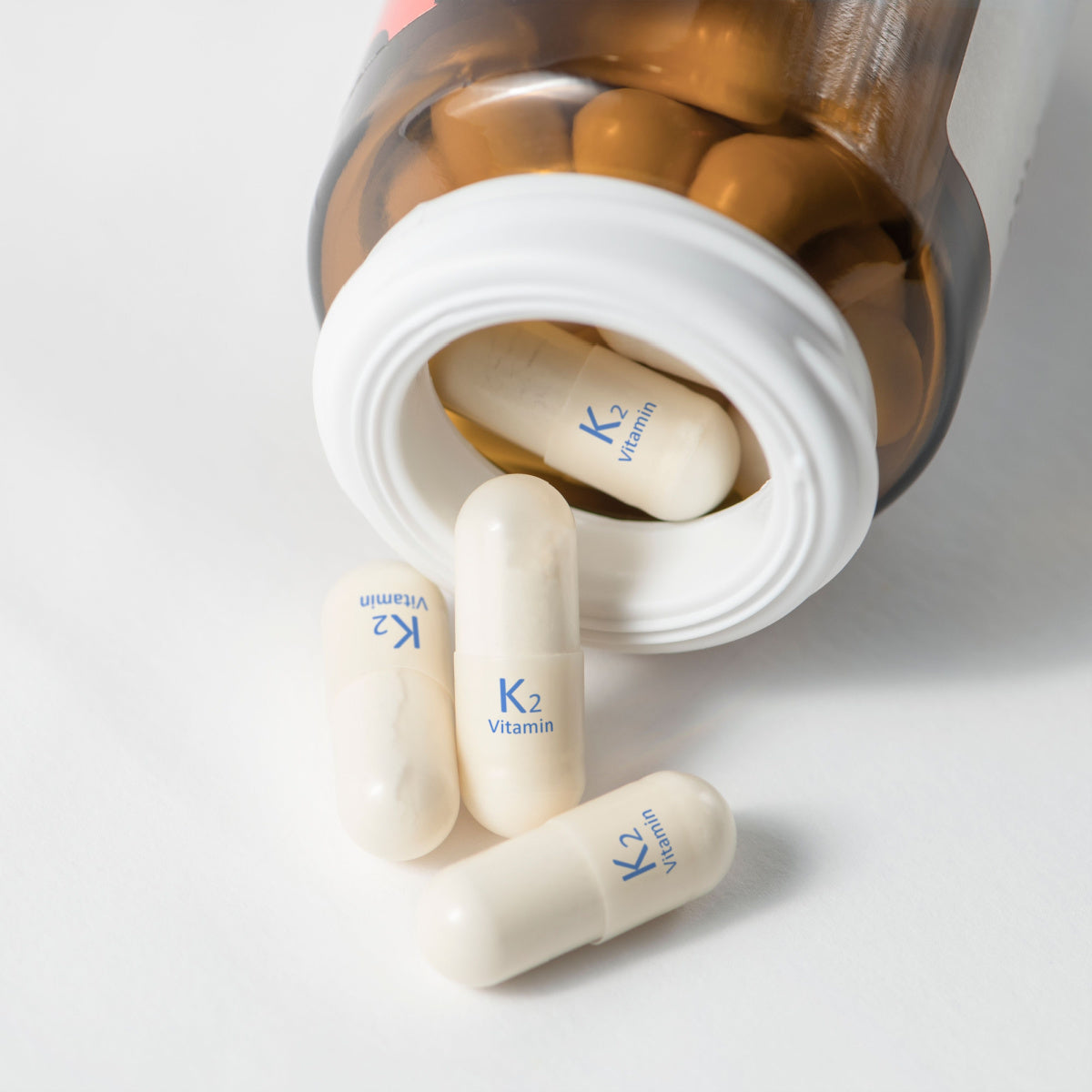Vitamin K2, despite being less popular than other vitamins, holds numerous potential health benefits and merits further attention. By exploring the benefits of Vitamin K2 and the best supplements available, you can make a more informed decision about this essential nutrient. Discussing Vitamin K2 with your doctor provides a good starting point.
What Exactly is Vitamin K2?
Being a fat-soluble vitamin, Vitamin K has some unique characteristics. The other fat-soluble vitamins are A, D, and E. Vitamin K tends to be stored in body fat. However, unlike other fat-soluble vitamins, it isn't stored in substantial amounts. Instead, a portion of it is continuously recycled.
The moniker "Vitamin K" originates from the German term "koagulation." Researchers originally identified it as a crucial factor in blood coagulation, or clotting. Without coagulation, ongoing bleeding could result from routine cuts or bruises.
Different forms of Vitamin K include:
- Vitamin K1, or phylloquinone, is the most common dietary source of the vitamin, synthesized by plants.
- Vitamin K2, or menaquinone, is a natural form of Vitamin K, synthesized by gut bacteria. It can also be obtained from animal-sourced and fermented foods.
- Vitamin K3, or menadione, needs to be converted to Vitamin K2 to be active.
Vitamin K functions are quite diverse, including:
- Ensuring proper blood clotting, thereby preventing hemorrhage.
- Helping bind calcium to strengthen bones and teeth.
- Assisting calcium binding to curb artery calcification.
- Facilitating Vitamin D in its role of calcium and related hormone regulation.
Key Benefits of Vitamin K2
Role in Blood Clotting
The importance of Vitamin K2 in blood clotting cannot be understated. It plays a vital role in multiple steps of the coagulation process. Vitamin K2 deficiency may interrupt regular coagulation and result in uncontrolled bleeding, or hemorrhage.
The significance of vitamin K for blood clotting is particularly crucial in newborn babies. All newborns should receive a Vitamin K injection due to breast milk being relatively low in its content and its poor transportation across the placental barrier.
Promoting Bone Health
Maintaining healthy bones requires robust minerals. Calcium, bound by a protein called osteocalcin, or bone Gla protein, is a primary constituent. While Vitamin D regulates the synthesis of osteocalcin, Vitamin K's role ensures its activation and proper functioning. Without Vitamin K, osteocalcin might not successfully stimulate normal hydroxyapatite, a type of bone mineral production.
Dental Health Advantages
Similar to bones, teeth require an appropriate mineral structure for strength and health. Osteocalcin, which triggers bone mineral formation, is believed to stimulate dentin formation. Dentin, a hard tissue containing calcium, resides beneath your teeth's surface enamel.
Heart Health Benefits
Vitamin K facilitates calcium absorption into bones and teeth, enhancing their strength. This function simultaneously reduces calcium levels in the blood. This reduces the chances of calcification, a process linked to atherosclerosis and heart diseases.
Additional Potential Benefits of Vitamin K2
Given the pervasive role of Vitamin K2 in various body processes, its benefits are extensive. One key reason is its relationship with calcium, a necessity for bones, nerves, muscles, and the heart.
Further potential benefits of Vitamin K2 include:
- Lowering the risk of kidney stones for people with kidney disease.
- Possibly reducing cancer risks.
- The potential to enhance athletic performance.
Vitamin K2 Sources
While several food sources provide Vitamin K in the form of Vitamin K1, phylloquinone produced by plants, others offer Vitamin K2, or menaquinone. Each nutrient can be maximally absorbed in the presence of a fat source.
The Rarity of Vitamin K2 Deficiency
Vitamin K2 deficiency is relatively rare due to its availability in several food sources and its efficient reuse in the body. However, certain conditions and factors might enhance its deficiency risk.
Vitamin K2 and Its Lack of Side Effects
Given that the body can store fat-soluble vitamins more effectively than their water-soluble counterparts, choosing the best Vitamin D3 and K2 supplements becomes crucial. However, the body doesn’t store Vitamin K in substantial amounts like other fat-soluble vitamins, and Vitamin K2 is generally considered safer than Vitamin K3 with no known toxic effects.
Using Vitamin K2 Patches
Employing Vitamin K2 patches is a way to access the nutrient without resorting to synthetic variants like Vitamin K3 or menadione.
The Vitamin D3 with K2 Patch by PatchAid offers an easy method of procuring these essential nutrients, making it one of the best available supplements.
Consult your doctor to determine if Vitamin K2 could be a beneficial supplement for you.







